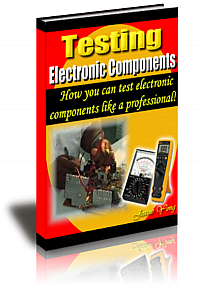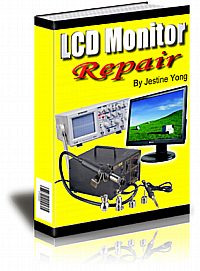Testing Coil- Secrets On How To Test Coil Or Inductor With Analog, Inductance and Flyback Tester
Testing coil is very easy compares to checking three leads components such as SCR, FET and etc. In general, a coil consists of many turns or wire wrapped around a common core. The core could be made of iron or even air.
When an electric current passes through the coil, a magnetic field is produced. A coil in some respect s acts just opposite a capacitor. A capacitor blocks DC while allowing AC to flow through it; a coil allows DC to flow through it while restricting AC current flow. Another name for a coil is an inductor.
Coil or inductor can be test using an analog, inductance or a coil meter such as the dick smith flyback tester. A coil that is small in size, I would usually just test it with analog meter and you could check it on board too. Set your analog meter to X1 ohm and place the probes across the small coil. The meter should show some reading (or continuity) and this proved that the coil winding is okay. Small coils seldom spoilt because it have less winding compares to big coils where it could have many turns of winding and chances for it to go shorted is very high.
Click here to test electronic components like a Professional!
Testing bigger coil or inductor such as the computer monitor B+ coil, you need an inductance meter to find out the exact inductance value which is in the unit of henry (h). From experienced using an inductance meter to check coils to see if it good or bad is not recommended because a shorted coil (shorted between winding) could have a good inductance value and you would miss out checking a bad coil. Unless you want to use the inductance meter to calculate the reading and do rewinding, looping and etc on that coil. I would only test a big coil with dick smith flyback meter. Any shorted winding in it could be easily detected by this meter.
When measuring the B+ coil, the Led lights went off and it suppose to show at least 5 LED bars and above. Upon soldering out the coil, I did not see any burn mark at the winding or loop and in fact it looks shiny. Because I trust the meter, I opened up the winding and to my surprised the internal winding had burnt into crisp but the outer winding looks good indeed! A new B+ coil restored the monitor to life.
By using a flyback tester for testing coil, it has helped me to locate many shorted coils in switch mode power transformer primary winding, B+ coil, flyback transformer primary winding and horizontal deflection coil. The flyback meter can even be used to check the condition of ballast in fluorescent lamp too!
Using Flyback Tester To Test Flyback Transformer
Click here to become a Professional In LCD Monitor Repair
|
|
Copyright@ 2006-2014-www.ElectronicRepairGuide.com All Rights Reserved






 Now is the
time to share my true case example- a computer dealer send me
a monitor for repair with power blink symptom. Usually I do
not straight away repair the monitor but I would first use
the flyback tester to scan all the major coils (smps,
flyback, b+ coil and horizontal deflection coil) before using
my digital or analog meter to do testing.
Now is the
time to share my true case example- a computer dealer send me
a monitor for repair with power blink symptom. Usually I do
not straight away repair the monitor but I would first use
the flyback tester to scan all the major coils (smps,
flyback, b+ coil and horizontal deflection coil) before using
my digital or analog meter to do testing.
